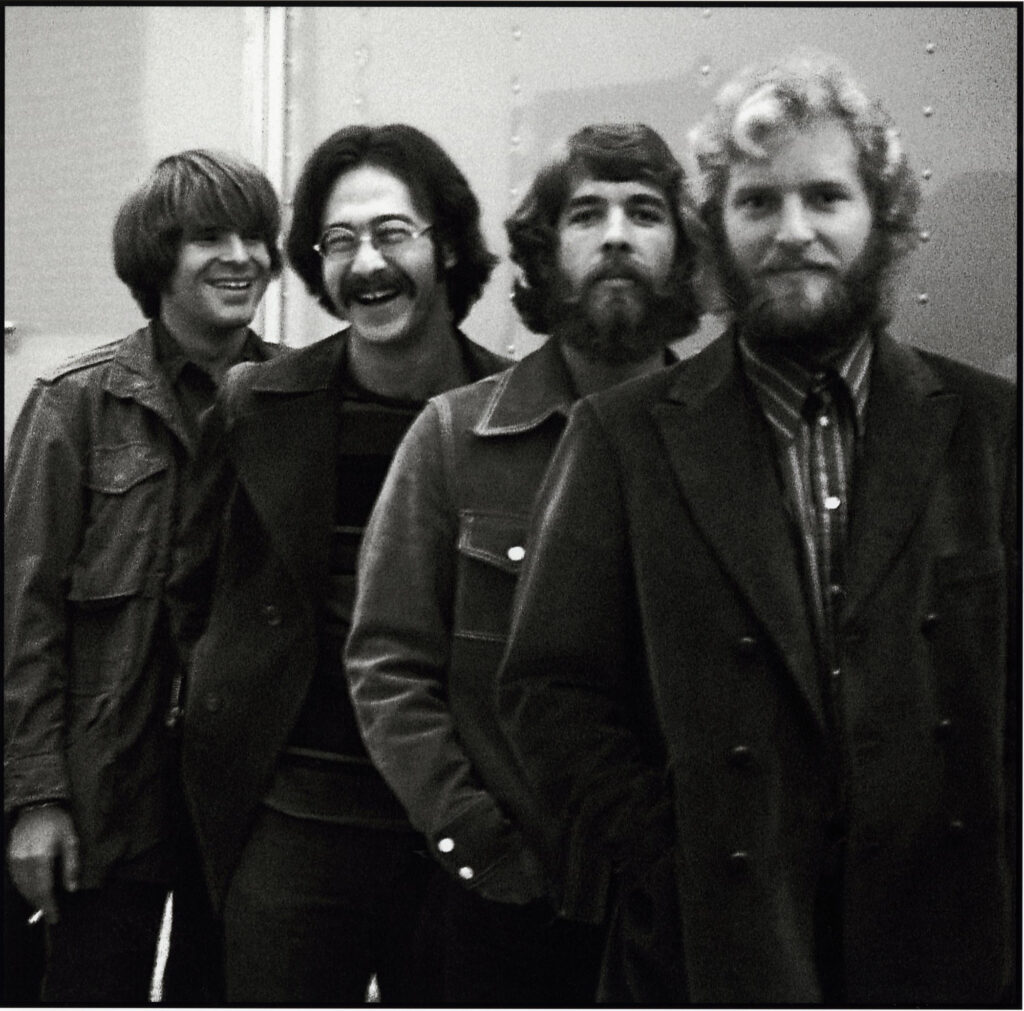
“(Wish I Could) Hideaway” is CCR’s weary prayer for shelter—when the world feels unfixable, and the only comfort left is to slip quietly out of sight.
If you’ve mostly met Creedence Clearwater Revival through their big public monuments—“Fortunate Son,” “Bad Moon Rising,” “Proud Mary”—then “(Wish I Could) Hideaway” can feel like walking into a smaller room at the back of the house, where the laughter from the front fades and you finally hear what someone’s been carrying all day. It’s not a hit. It wasn’t built for radio glory. It’s built for that human moment when you look at the mess of things—inside you, around you—and the bravest sentence you can manage is simply: I wish I could hide away.
Here are the facts, precisely placed up front. “(Wish I Could) Hideaway” is an album track on Pendulum, the sixth studio album by Creedence Clearwater Revival, released by Fantasy Records on December 9, 1970. Every track on Pendulum—including “(Wish I Could) Hideaway”—is written by John Fogerty. The album was recorded in November 1970 at Wally Heider Studios (San Francisco) and produced by John Fogerty. On the original LP sequence, “(Wish I Could) Hideaway” appears on Side One, Track 5, with a listed time of 3:53 (timings can vary slightly by pressing and digital platform).
In terms of “ranking at release”: the song itself did not chart because it was not released as a single. The chart story belongs to the album. Pendulum peaked at No. 5 on the Billboard 200. The album’s lone single, the double A-side “Have You Ever Seen the Rain” / “Hey Tonight,” came out in January 1971 and reached No. 8 on the Billboard Hot 100—a reminder of just how dominant CCR still were at this stage, even as their internal tensions were beginning to show.
That context matters because “(Wish I Could) Hideaway” doesn’t sound like a band celebrating victory. It sounds like a band—like a narrator—trying to keep it together. Pendulum is famously different from CCR’s earlier swamp-stomp identity: more keyboards, more studio color, more reflective pacing. You can hear that shift right here. The track closes the first side like a curtain dropping—after the punch of what came before, it leaves you alone with a gentler, sadder atmosphere that feels almost conversational.
The lyric begins like a neighborly check-in—“Howdy, friend…”—but there’s unease underneath the politeness. It’s the kind of voice that tries to be kind because kindness is all it has left. The song’s emotional core isn’t melodrama; it’s resignation mixed with tenderness. The speaker sees someone falling apart—selling belongings, glassy-eyed, ready to disappear—and he doesn’t offer a grand solution. He offers what ordinary people offer when life gets too big: Is there some way I can help? And then the line that breaks the heart in its simplicity: “Wish I could hideaway.” It’s not just sympathy. It’s identification. As if the listener suddenly realizes the narrator isn’t merely watching someone leave—he’s admitting he wants the same escape.
Musically, the track’s strength is restraint. CCR were masters of economy, but here the economy is emotional: the groove doesn’t swagger, it sways. The band leaves space—space for the words, space for the fatigue behind them, space for the listener’s own unspoken reasons to want a hiding place. Even the implied train imagery—“I can hear the leavin’ train”—is classic CCR, yet it’s used differently than in their more romantic “on-the-road” songs. Here, the train isn’t freedom. It’s distance. It’s the sound of goodbye approaching before you’re ready.
And that, ultimately, is the meaning of “(Wish I Could) Hideaway.” It’s not a protest, not a sermon, not a fantasy. It’s a small, deeply human record of emotional weather—when you can’t fix the world, can’t fix another person, and can barely promise you’ll fix yourself. All you can do is offer a wish, half mercy and half confession, and hope the music holds you upright while the train passes.
If CCR’s greatest songs often feel like American scenes, “(Wish I Could) Hideaway” feels like an American feeling: the quiet longing to step out of the line for just one day—and come back when the noise has softened.